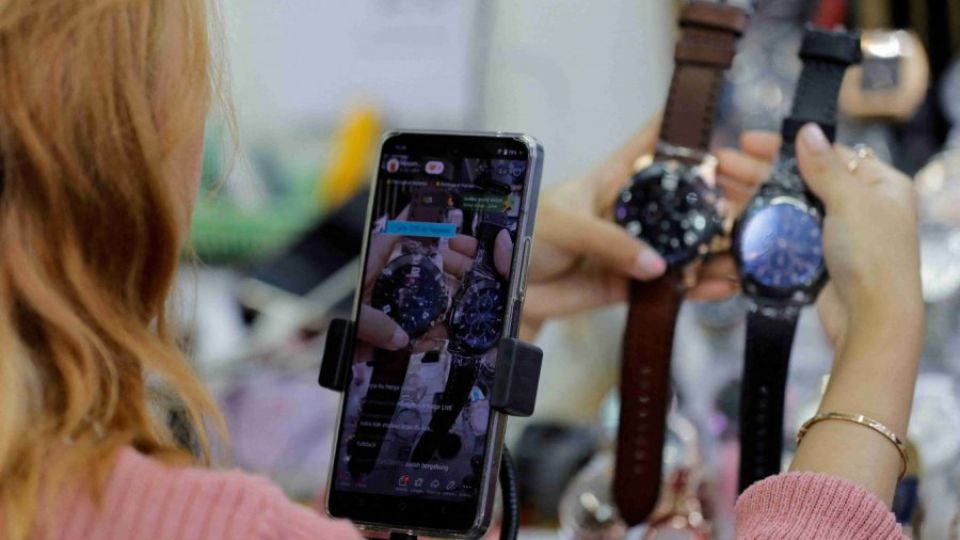November 1, 2023
JAKARTA – Social media platforms reportedly keen to engage in e-commerce in Indonesia, despite the government recently restricting social commerce, will need to go through several regulatory hoops according to business analysts.
Since the implementation of Trade Ministry Regulation No. 31/2023 a month ago with the stated goal of promoting “fair and just” competition, social media companies have made no visible changes to their platforms to expand into social commerce.
However, media and research reports have sparked speculation about TikTok looking to relaunch its TikTok Shop in the country after the forced shutdown of the e-commerce service on Oct 4.
The platform has made no announcement of such a move, and the Financial Times described the situation surrounding the Chinese firm’s business plans in Indonesia as “fluid” in an article published on Friday.
Beijing-based ByteDance, owner of the popular TikTok video-sharing app, has put together product and technology teams in Singapore to discuss ideas after Jakarta imposed the ban, according to the FT report.
A source told the paper that the social media firm was not actively working on a separate app at the moment but was “exploring all available options”.
Meanwhile Alphabet, the parent company of Google and YouTube, was seeking an e-commerce license in Indonesia, Reuters reported, without specifying any details of the license sought.
However, Asia-Pacific YouTube regional director Ajay Vidyasagar denied the report, saying the company had no plans to apply for an e-commerce license, as reported by Katadata on Friday.
The Trade Ministry’s director general of domestic trade, Isy Karim, said TikTok and YouTube had not approached authorities for any such license.
Meanwhile, Facebook owner Meta had applied for a license through the Investment Coordinating Board (BKPM) online single submission (OSS) system, according to the Trade Ministry’s director for trade through electronic systems and trade in services, Rifan Ardianto, as reported by Bisnis on Friday.
He noted that there were no further developments so far.
Read also: TikTok, YouTube, Meta eye Indonesia e-commerce licenses- sources
The reports suggest that social media companies have not given up on e-commerce activities in Indonesia. Analysts say social media platforms holding operating permits in Indonesia have the option to apply for both social commerce and e-commerce licenses.
“Yes, this is indeed possible, but it depends on each social media platform’s internal policies, considering which option is advantageous in terms of overall cost-benefit and risk appetite,” Center for Indonesian Policy Studies researcher Muhammad Nidhal told The Jakarta Post on Friday.
“If they choose to open social commerce services, YouTube and Meta could proceed with the licensing process by complying with the prevailing regulations. However, establishing a new e-commerce business would involve more complex licensing requirements,” he added.
For e-commerce, companies not only needed an electronic trading system license, but also had to at least obtain a license as a private electronic systems organizer, based on Communications and Information Ministry Regulation No. 5/2021, and secure a ticket from the OSS management agency, he elaborated.
Christina Desy from Indonesian legal advisory platform Hukumonline told the Post on Tuesday that, while companies were allowed to obtain multiple business licenses for various activities, the new regulations specifically excluded social media businesses from acquiring a payment app business license.
“There are no explicit provisions prohibiting a company from establishing subsidiaries for different functions,” she pointed out. “Companies could create a subsidiary to function as a social commerce [platform] in one instance and establish another subsidiary to operate as a payment app in another.”
To prevent monopolistic practices and the formation of cartels, the regulation stipulates that companies have to ensure there is no interconnection between the electronic systems used as marketplace facilities and electronic systems beyond e-commerce platforms, she said.
This was to prevent misuse of user data by platform operators and to limit unfair competition practices, she added.
However, regarding collaboration between social media companies and payment gateways, Christina pointed out that adherence to Bank Indonesia Regulation No. 23/6/PBI/2021 was essential.
“If such collaboration is intended for marketing payment gateway company products and/or payment services, it is possible,” she explained.
However, “if the collaboration aims to enable users to make payments through social media, it is not allowed,” Christina said.
Indonesian tech giant GoTo declined to comment when contacted by the Post, while Google and TikTok did not respond to requests for comment.
Read also: Emboldened by TikTok victory, offline vendors take on e-commerce
Southeast Asia’s e-commerce market is expected to expand by 100 percent in the next five years, according to a report produced by market intelligence firm IDC. The region will be the top region for digital-economy growth over the next five years, ahead of the United States, the European Union, South Korea and Japan.
Cross-border e-commerce revenue is primed to grow by a striking 70 percent to US$148.1 billion by 2027, faster than the growth of domestic e-commerce revenue.
Indonesia was the first and biggest market for TikTok Shop, until its service was halted by the government regulation. It had been forecast to triple its e-commerce market share in the region to 13.2 per cent in 2023 from 4.4 per cent in 2022, according to consultancy Momentum Works.


